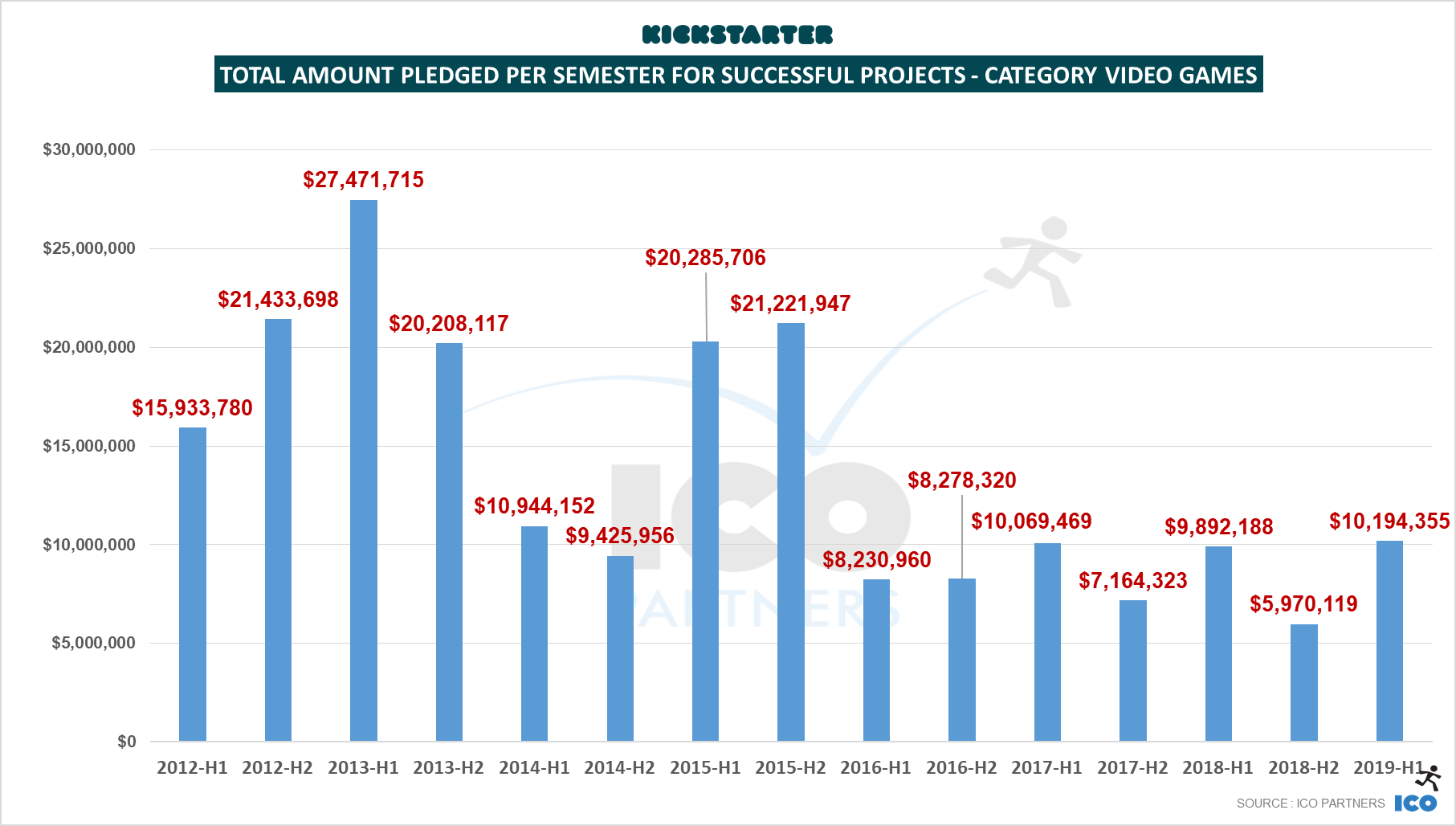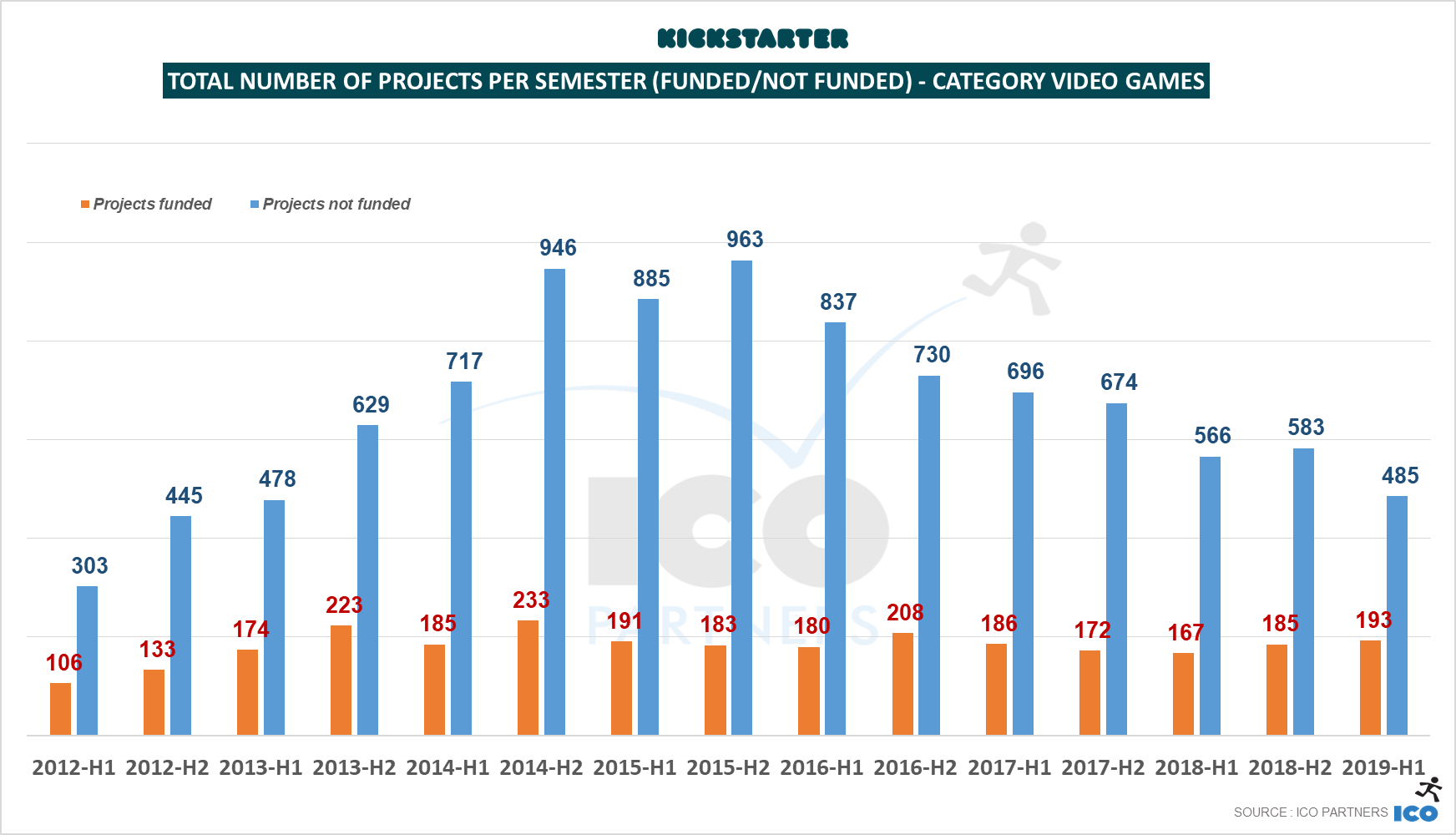Thomas Bidaux, CEO of gaming consultancy firm ICO Partners, has shared data on how the first half of 2019 has treated video games on Kickstarter.
Apparently, pretty well.
In 2019 so far, backers have pledged over $10m, which is the best result since 2015.
Image credit: ICO Partners
Interestingly, this happened against the backdrop of the general decline in the number of submitted projects. Developers have submitted 678 projects in the first six months of 2019. It’s the lowest since the first half of 2013.
The number of funded projects, on the other hand, has been steadily growing since 2017. Out of 678 campaigns in 2019 so far, 193 got the funding. That’s a 28% success ratio – something the platform hasn’t seen since the launch of the Double Fine Adventure campaign in 2012.
Image credit: ICO Partners
Here’s a breakdown of how many games raised how much:
- 4 projects got over $500,000;
- 10 projects raised more than $100,000 but less than $500,000;
- 22 projects received from $50,000 to $100,000 in backers’ money;
- 55 projects got between $10,000 and $50,000 under their belts;
- 102 projects (roughly 50% of the total number of successful campaigns) got under $10,000 in funding.
By the way, the biggest campaign (£1,668,626 / $2,192,000) for the period has been Subverse, an adult-themed title that got over 58,000 backers excited. 8% of them are from China, making Subverse the first project on the platform that has seen any significant backing from this country.
In another interesting trend, the projects funded in USD only account for 43% of all successful campaigns on Kickstarter in 2019. That’s a new one because historically projects in USD have always made up more than a half. The second most used currency on the platform is GBP (25%), followed by EUR (19%), JPY (9%), and others (4%).
The bottom line, according to Bidaux, is that fewer developers pursue crowdfunding, but a higher number of campaigns succeed. Overall, the pledged numbers in 2019 have remained roughly in the same range that we’ve seen since 2015, which is a sign of Kickstarter’s maturity. It also stopped being a U.S.-centric platform, attracting lots of backers from Asia.
Earlier, Bidaux shared some cool tips for crowdfunding campaigns. You can watch his talk here.


